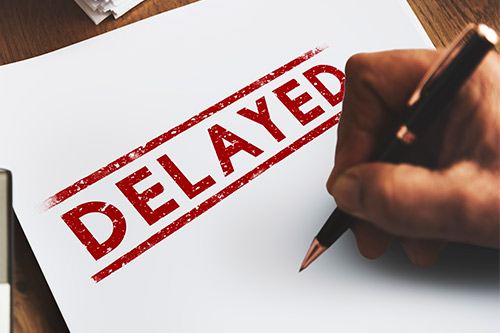5 Ways Texas Insurance Companies Try to Underpay Commercial Property Claims
For Texas business owners, commercial property insurance should provide peace of mind. Yet the reality is far more challenging. Nearly half of all property claims in Texas closed without payment in 2024, and denial rates have increased from 35% to 47% since 201. This troubling trend follows the 2017 passage of House Bill 1774, which reduced penalties for insurers that delay or underpay claims.
Businesses routinely face sophisticated underpayment tactics: adjusters manipulating repair versus replacement scopes, applying excessive depreciation, using outdated pricing models, or relying on questionable inspections. These practices can devastate operations, drain financial resources, and delay critical repairs.
Understanding these strategies is your first line of defense. When you recognize the tactics insurers use to minimize payouts, you can take proactive steps to protect your business assets and get every penny of the compensation you deserve. This guide examines five common methods Texas insurers use to underpay commercial property claims and how you can effectively counter each one.
Delaying Claim Processing to Wear Down Policyholders

Insurance adjusters may implement numerous delay tactics, including requesting excessive or redundant documentation, scheduling multiple inspections weeks apart, or taking days or weeks to respond to communications. Some adjusters might continuously transfer your case between departments, requiring you to restart explanations with each new representative.
For commercial property owners, these delays create devastating ripple effects. While waiting for claim resolution, businesses must either finance repairs out-of-pocket, depleting working capital, or continue operations in damaged facilities, potentially violating safety codes or losing customers. Extended business interruption can lead to revenue loss far exceeding the original property damage. As financial pressure mounts, many business owners reluctantly accept lowball offers to survive.
Countering these tactics requires proactive steps on your part, and possibly even the support of an experienced attorney. Here are a few things you can do before you even encounter any stalling techniques to prepare for whatever comes your way during the claims process:
- Document every interaction with your insurer, including dates, names, and summaries of conversations.
- Send follow-up emails confirming verbal discussions, and maintain copies of all submitted materials.
- Establish written timelines for claim milestones and formally escalate concerns to supervisors when delays become unreasonable.
- In extreme cases, file a complaint with the Texas Department of Insurance to apply regulatory pressure.
Undervaluing the Cost of Repairs or Replacement

Insurers may undervalue claims by using one of several methods. Many adjusters rely on outdated price lists that don’t reflect current construction costs, particularly problematic in Texas markets where material and labor costs fluctuate significantly. When Hurricane Harvey struck in 2017, many businesses received estimates based on pre-storm pricing that bore little resemblance to post-disaster construction costs.
Another prevalent tactic involves deploying preferred contractors who consistently provide lowball estimates. These contractors, sometimes unlicensed or lacking appropriate credentials, may overlook critical damage or recommend inadequate repairs to please the insurance company that provides their steady stream of work. Additionally, insurers frequently employ estimation software programmed with built-in cost constraints that consistently generate below-market valuations.
Perhaps most insidious is the “repair versus replace” manipulation, where insurers push for patching damaged items when complete replacement is actually warranted. This approach not only cuts immediate costs for the insurer but often leads to future problems not covered by the policy. For businesses, these tactics may result in devastating financial shortfalls. Many commercial property owners deplete cash reserves, take on debt, or delay critical operations while attempting to bridge the gap between inadequate settlements and actual repair costs. Some businesses never fully recover from the financial strain of underfunded repairs, especially when structural or safety issues remain unaddressed due to insufficient funds.
Disputing Coverage or Policy Interpretation

Since Texas passed House Bill 1774 in 2017, insurers have become even bolder in their coverage disputes. This legislation reduced penalties for companies that delay or underpay claims while restricting policyholders’ ability to recover attorney fees when fighting back. Common coverage dispute tactics include reclassifying damage types (such as labeling water damage as pre-existing moisture issues), narrowly interpreting covered perils, and applying exclusions liberally while interpreting coverage provisions strictly.
Insurance adjusters might also misrepresent what constitutes “cosmetic” versus “functional” damage. For example, they may claim that dented metal roofing is merely cosmetic and doesn’t affect functionality, despite the fact that such damage can compromise structural integrity and lead to leaks over time.
To counter these tactics, thoroughly review your policy before disaster strikes and seek clarification on ambiguous terms. During claims, document everything and request written explanations for any coverage denials that cite specific policy language. If disputes persist, consider requesting an appraisal, a process where both you and the insurer hire appraisers who then select a neutral umpire to make final decisions on disputed items. For significant disputes, consulting with an attorney specializing in commercial insurance claims can help level the playing field when confronting questionable coverage interpretations.
Blaming Pre-Existing Damage or Wear and Tear
Texas insurers sometimes also attribute new damage to pre-existing conditions or normal wear and tear. When catastrophic events like storms or fires damage your property, adjusters may claim that the issues existed before the covered event occurred, allowing them to reduce payouts or deny claims entirely.
Insurance companies implement this strategy through several methods. They may deploy engineers or inspectors who produce reports that conveniently omit critical weather data, downplay the extent of recent damage, or overemphasize signs of aging. These reports frequently lack thoroughness, focusing narrowly on elements that support denial rather than conducting comprehensive assessments. Some insurers rely on opinions from unlicensed contractors or use outdated inspection protocols that fail to identify legitimate damage.
Another concerning practice is the reclassification of damage types. What might clearly be storm damage to a business owner becomes “normal wear and tear” in an adjuster’s report. Similarly, insurers may redefine cosmetic damage as functional to avoid payouts, particularly in cases involving roof, siding, or exterior components. This definitional sleight-of-hand can leave businesses with substantial uncovered repair costs.
To protect against these tactics, proactive documentation is essential. Maintain a regular schedule of property inspections with date-stamped photographs of all major building components. After purchasing or renewing insurance, consider conducting a baseline inspection with an independent contractor who can verify your property’s condition. Keep detailed maintenance records that demonstrate your building was properly cared for before the damage occurred.
When filing a claim, immediately document the damage with photographs and videos from multiple angles before temporary repairs begin. If the insurer sends an engineer or inspector, request to be present during their assessment and take your own notes. Don’t hesitate to question their credentials or methodology. If you receive a denial based on pre-existing conditions, request written clarification citing specific policy language and consider hiring your own licensed professional to provide a counter-assessment that can challenge erroneous conclusions.
Applying High Deductibles or Depreciation to Reduce Payouts

Excessive depreciation represents another significant underpayment strategy. Adjusters may apply arbitrary depreciation rates that dramatically reduce replacement costs, particularly for building components like roofing, HVAC systems, and electrical infrastructure. Many insurers rely on outdated price lists that fail to reflect current market costs, further reducing payouts.
To counter these tactics, business owners should thoroughly review their policies to understand exactly how deductibles apply in various scenarios. Maintain detailed records of property improvements and regular maintenance to challenge excessive depreciation. When receiving settlement offers, request itemized breakdowns showing how depreciation was calculated. If faced with unreasonable deductions, consider requesting an appraisal. For significant claims, engaging a public adjuster or attorney specializing in commercial insurance can help navigate these complex negotiations and ensure fair treatment.
Protect Your Business Against Undervalue Commercial Property Claims
Texas commercial property owners face a challenging landscape, with insurers employing tactics like delaying claims, undervaluing repairs, disputing coverage, blaming pre-existing conditions, and manipulating deductibles to minimize payouts. Thus, businesses must be vigilant.
To strengthen your position, document everything meticulously, including the property condition before damage, all communications with adjusters, and repair estimates from independent contractors. Familiarize yourself with your policy’s exact language and deadlines. When filing claims, provide thorough documentation and respond promptly to all requests.
| Underpayment Tactic | Protective Action |
| Delaying claim processing | Establish clear timelines, document all communications, and follow up in writing |
| Undervaluing repairs | Obtain multiple independent estimates, and request detailed explanations for low valuations |
| Disputing coverage | Request a written explanation of denied items, compare with policy language |
| Blaming pre-existing damage | Maintain regular property inspection records, photos before and after incidents |
| Excessive depreciation | Challenge arbitrary depreciation rates, and provide maintenance records |
Are you facing challenges with insurance claim denials or underpayments in Texas? Palker Law Firm is here to help you navigate these hurdles with confidence and expertise. Our assertive and client-focused approach ensures that your fight becomes our fight.
With a deep understanding of Texas insurance laws, we advocate for your rights and work tirelessly to secure the compensation you deserve. Don’t let insurance companies take advantage of you. Contact us today to discuss your case and explore how we can assist you in overcoming these obstacles.






